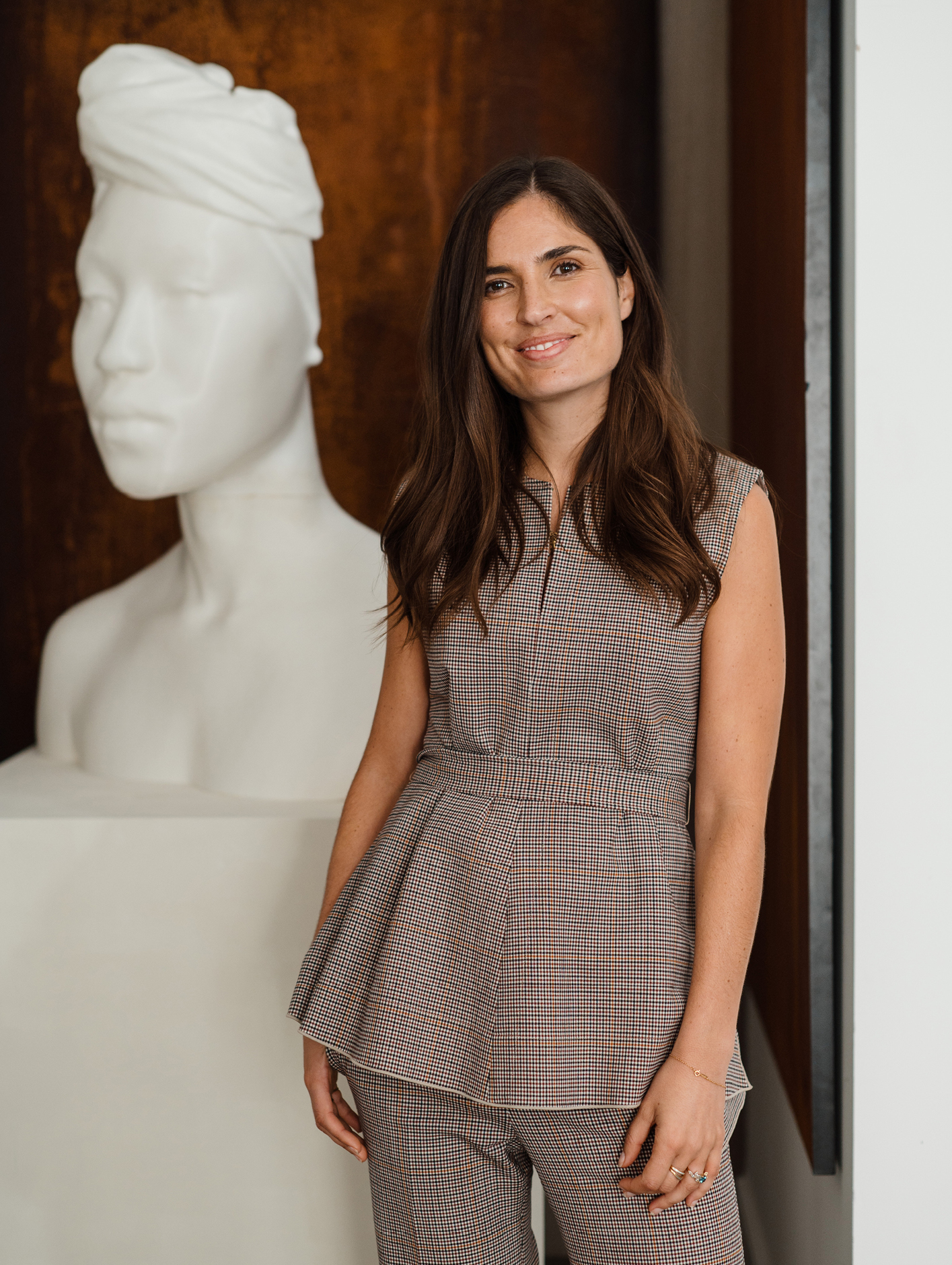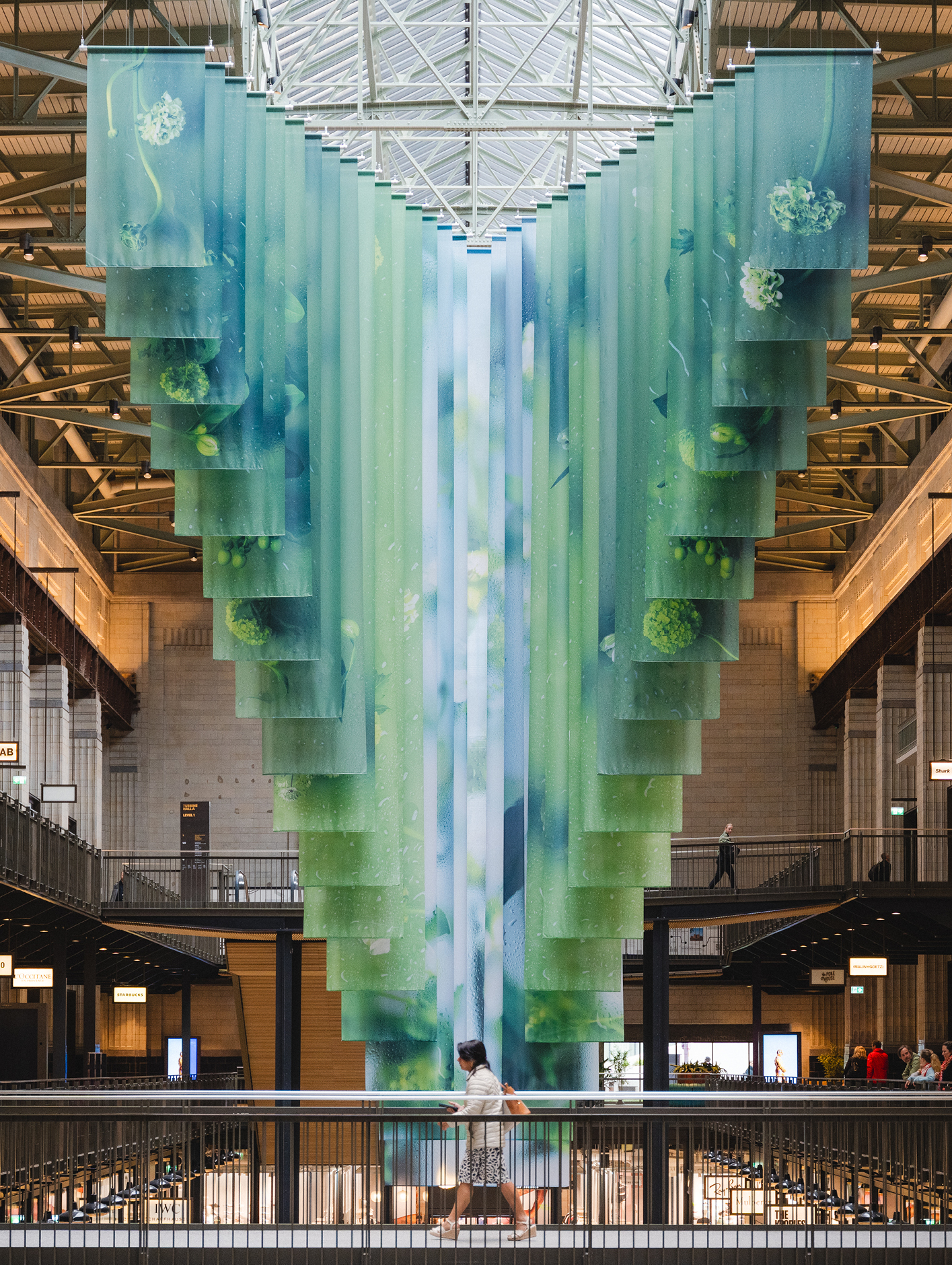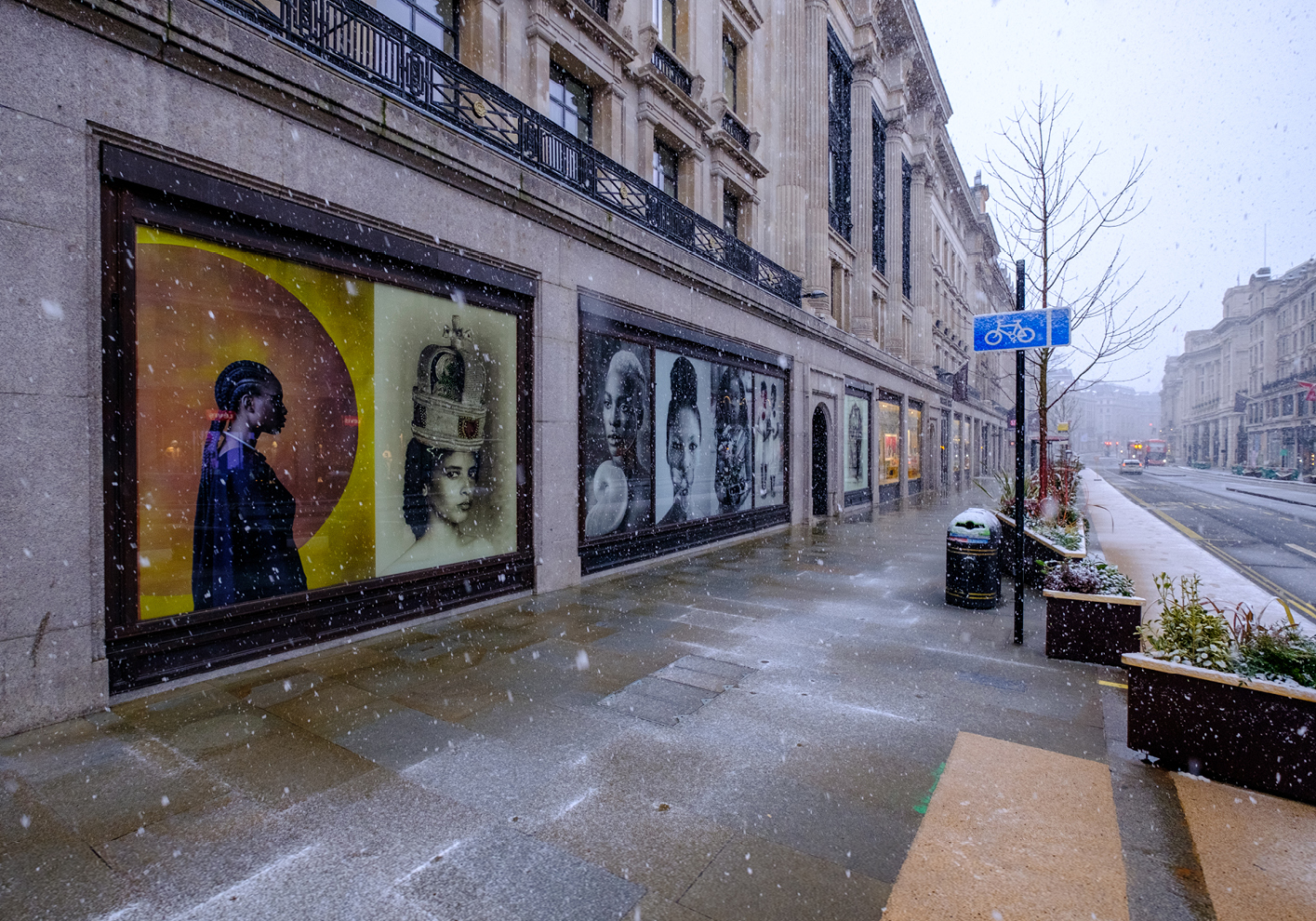WORDS
Juliet Herd
The cover of leading art entrepreneur Marine Tanguy’s bestselling debut book, The Visual Detox: How to Consume Media Without Letting it Consume You, features a benign blue sky and lone billboard depicting more blue sky with a smattering of clouds. It is deliberately neutral, calming even, and openly challenges the reader to not judge it by its dust jacket.
‘I insisted on not having a picture of me on the cover,’ explains Tanguy, CEO and founder of industry-disrupting MTArt Agency, valued at more than £35 million and one of the fastest-growing companies in the UK. ‘I think we are all judged and I wanted people to come [to the book] as open-minded as possible.’
Part manifesto, part self-help manual, The Visual Detox is a call to arms for people to reclaim control of their visual narrative in a world where the author believes overconsumption of information and imagery has become a threat to our collective wellbeing. Tanguy’s statistics are sobering: every day online, we encounter an average of 10,000 commercial images and advertisements. We have become so accustomed to this visual deluge that ‘we are not even aware of the messaging,’ she writes. And this is the crux of the problem. ‘When we consume images without understanding that the message they are sending us is having an effect on our thoughts and wellbeing, we become indifferent to the message and continue to consume these visuals without interrogating them.’
The harm caused by indiscriminate social media and billboard bombardment is insidious, Tanguy argues, shaping and reinforcing biases based on gender, race, socio-economic status and age. ‘We’re being brainwashed. What we see shapes what we are consuming, our desires and our insecurities,’ she says. Women, in particular, are targets. ‘Visual consumption seems to encourage and reward the female body but not the female brain,’ she adds, citing recent studies that show only two per cent of female-led businesses are able to raise funding, yet women are 150 per cent more likely than men to face cyberbullying. ‘It’s little wonder that girls don’t want to become leaders.’

France-born former art gallery owner Tanguy, 35, founded London-based B Corp-certified MTArt in 2015 to liberate art from the confines of galleries and give artists more opportunities to promote and sell their work. Her strategy was to turn the conservative art world on its head by making art more mainstream, accessible and diverse through public art projects and by exploring new revenue streams for artists, such as brand and digital collaborations. Her agency now represents such global talents as climate artist David aiu Servan-Schreiber, whose work recently featured in a scene in the new series of Emily in Paris, AI innovator Léo Caillard, whose pieces have been exhibited at the Louvre, as well as Lorenzo Quinn, Àsìkò, Zak Ové and Polly Morgan. It has also been instrumental in helping to launch some of the most ambitious public art projects in recent years, including UK-based artist Rayvenn Shaleigha D’Clark’s three Black Renaissance sculptures at the groundbreaking new Freedom Monument Sculpture Park in Montgomery, Alabama; Claire Luxton’s Field of Dreams immersive installation at Battersea Power Station; and the newly opened 57-metre mosaic mural In a River a Thousand Streams by artist Adam Nathaniel Furman at London Bridge Station.

In a major new collaboration with The National Lottery as part of its 30th anniversary celebrations, monumental artworks by three MTArt artists, David Popa, Robert Montgomery and Luis Gomez de Teran, have been gradually unveiled in iconic locations across the UK over the past couple of months. First to launch were graffiti artist Gomez’s Perspex-screen portraits of seven “game changers” in London’s St James’s Park. Appearing to float on water, his artwork honours the achievements of seven incredible individuals from across the UK, who have done extraordinary things with the help of National Lottery funding.
It was during the Covid pandemic that Tanguy was able to demonstrate the transformational power of public art when she won the support of Westminster council and the Crown Estate to turn some of the ghost-town streets into uplifting, and ultimately safer, spaces by installing artworks on shopfronts and hoardings. One such example was French-Senegalese artist Delphine Diallo’s evocative One Love photographic exhibition in the heart of Regent Street. ‘So many people said they were touched by that,’ she reflects of the Black Lives Matter-themed work. ‘Instead of fuelling outrage, it’s about how do we progress; how do we create more inclusive spaces and change the narrative on cities and visual stories.’

She believes strongly that ‘our visual world is a civic space and that we all have an equal right to it,’ which is why this tireless campaigner is determined that people are afforded a greater say in the imagery that surrounds them and are equipped with the tools to change their visual landscape. To that end, she is on a mission to help develop visual literacy ‘to train eyes and challenge what you look at’. The irony, she says, is that 65 per cent of people are visual learners – ‘the brain processes the way you think through imagery’ – as opposed to the 35 per cent who are verbal thinkers but that visual literacy is overlooked at a time when we are more exposed to potentially harmful content than ever.
While The Visual Detox offers practical steps people can take towards reclaiming their visual narrative – such as limiting screen time, filtering the brands they consume and even changing their daily commute for a more joyful, less visually stressful one – Tanguy sees the book’s main purpose as igniting dialogue and debate. ‘This is something that keeps unlocking conversations,’ says the avowed visual thinker.
Tanguy is also determined to engage with groups outside her own demographic. ‘I don’t care about someone identifying with me,’ she insists. ‘Quite the opposite. I want the idea to literally spread into networks that are not like me.’ Gen Zers have been particularly receptive to the themes in her book. ‘They are tough with the questions they ask, and they really engage,’ she says. ‘They know they are walking into this overwhelmingly visual world and they know they are ultimately going to have to deal with it. They understand visual representation and biases, AI and deep fakes. They want real conversations but there is a trust issue with institutions because they have been sold the idea that X or Y company was doing the right thing but behind the scenes it was just a communication stunt.’
Tanguy’s tactic, though, is not to banish advertising or to condemn companies but rather to work with them on rethinking their marketing strategies. ‘It’s not even doing a good job because, after a while, your brain is blocking it and you have this visual fatigue,’ she observes.
MTArt is increasingly being asked by governments and civic bodies to undertake what Tanguy describes as “visual lobbying”, which involves educating them on visual messaging and how they can create a healthier, happier visual environment. For example, the agency acted as adviser to the Swiss town of Vernier, near Geneva, which recently won a Supreme Court ruling that governments could act to limit “visual pollution”. The town has since become the first to ban most commercial advertising from its streets.
Tanguy sees other, larger cities following suit with public art having an increasingly vital role to play in improving representation, challenging stereotypes and driving cultural change. ‘Happiness is so tied to imagery yet we don’t teach visual critical thinking,’ she says. ‘I think art has a very special role to play in light of the many challenges ahead, such as the climate change crisis, that we need to reshape the values we want to see on a visual narrative level and how that impacts our everyday existence.’
Tanguy recently became a British citizen and is convinced she couldn’t have achieved the same level of disruption in her industry anywhere else in the world, including France. ‘I’m proud it is a British company,’ she says. ‘As a French person, London for me was the reason this was possible because it welcomes innovation and collaboration and enables these kinds of ideas to happen.
The Visual Detox (£16.99, Penguin); mtart.agency




